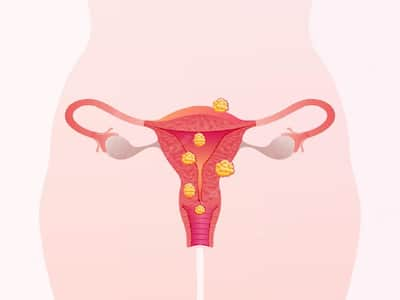
Early detection and management of uterine fibroids is important to reduce its impact on a woman’s reproductive health. However, various factors can lead to underdiagnosis of the condition.
Leiomyomas, sometimes referred to as uterine fibroids, are benign growths that form in the uterus. With a frequency estimated to be as high as 70 80 per cent among women of reproductive age, they are one of the most prevalent disorders impacting women’s reproductive health. Concerns about a possible increase in fibroid prevalence and a decline in women seeking diagnosis and treatment have surfaced recently.
Dr. Preethika Shetty, Consultant Obstetrician and Gynaecologist, Motherhood Hospitals, Kharadi, shared a medical viewpoint on the increasing incidence of fibroids based on the most recent findings and the potential causes of underdiagnosis of the condition.
Understanding Fibroids
The expert explained, “Fibroids are benign tumors that originate from the smooth muscle cells of the uterus. They can vary in size, location, and number, ranging from tiny, undetectable nodules to large masses that distort the shape of the uterus. Although the exact cause of fibroids remains unclear, hormonal imbalances, genetic factors, and other variables are believed to play a role in their development.”
Uptick in Fibroid Incidence
According to Dr. Preethika, factors that may contribute to an increase in fibroid incidence include:
Changing demographics
Research suggests that certain demographic factors may contribute to an apparent uptick in fibroid incidence. For instance, fibroids tend to be more common among African-American women, with a higher prevalence and earlier onset compared to other ethnic groups. Changes in population demographics, such as increased migration and interracial marriages, can influence the overall incidence rates.
Lifestyle and environmental factors
Changes in lifestyle and environmental exposures may also contribute to the perceived increase in fibroids. Factors such as obesity, a sedentary lifestyle, unhealthy dietary habits, and exposure to endocrine-disrupting chemicals in the environment have been implicated in the development and growth of fibroids.
Underdiagnosis and Decreased Detection Rates
Dr. Preethika pointed out some potential reasons for underdiagnosis of uterine fibroids such as:
Asymptomatic fibroids
Fibroids are often asymptomatic and may only be detected incidentally during routine pelvic examinations or imaging studies. Since these fibroids do not cause noticeable symptoms, many women may remain unaware of their presence, leading to underdiagnosis.
Nonspecificsymptoms
READ RELATED: Hate Going To The Gym? Transform Your Home Into A Gym With 5 Tools
Some women with fibroids may experience symptoms such as heavy or prolonged menstrual bleeding, pelvic pain, urinary frequency, or constipation. However, these symptoms can be nonspecific and may be mistakenly attributed to other conditions. As a result, women may delay seeking medical attention or may not associate their symptoms with fibroids, leading to underdiagnosis.
Lack of awareness
Limited knowledge about fibroids and their potential impact on health can contribute to underdiagnosis. Women may not recognize the symptoms or understand the importance of seeking medical evaluation for fibroids. Improving awareness among women and healthcare providers is crucial for early detection and appropriate management.
Inadequate access to healthcare
Disparities in access to healthcare, including socioeconomic factors, insurance coverage, and cultural barriers, can contribute to underdiagnosis and decreased detection rates. Women with limited resources or lack of health insurance may face challenges in accessing regular screenings and necessary diagnostic tests.
Limited access to advancedtreatment options
Advancements in minimally invasive treatment options for fibroids, such as uterine artery embolization and laparoscopic myomectomy, have provided alternatives to traditional surgical interventions. However, the availability and accessibility of these treatment options may vary, limiting women’s choices and potentially impacting detection rates.
Conclusion
The expert reiterated, “While concerns exist about an uptick in fibroid incidence and a decrease in detection rates among women, the reasons for these trends are multifactorial. Demographic changes, lifestyle factors, and environmental exposures may contribute to an increase in fibroid incidence. However, underdiagnosis and decreased detection rates can be attributed to various factors, including asymptomatic fibroids, nonspecific symptoms, lack of awareness, limited access to healthcare and advanced treatment options.”
“Improving education, raising awareness, enhancing access to healthcare services, and ensuring equitable care are essential in addressing these challenges and promoting early detection and management of fibroids. Women should be encouraged to seek medical evaluation for any concerning symptoms, and healthcare providers play a pivotal role in recognizing and addressing fibroids to ensure optimal reproductive health outcomes,” Dr. Preethik added.
Total Wellness is now just a click away.
Follow us on
Don’t Miss Out on the Latest Updates.
Subscribe to Our Newsletter Today!
window.addEventListener(‘load’, (event) => {
$(‘#commentbtn’).on(“click”,function(){
(function(d, s, id) { var js, fjs = d.getElementsByTagName(s)[0]; if (d.getElementById(id)) return; js = d.createElement(s); js.id = id; js.src = “//connect.facebook.net/en_US/sdk.js#xfbml=1&version=v2.3”; fjs.parentNode.insertBefore(js, fjs);}(document, ‘script’, ‘facebook-jssdk’));
$(“.cmntbox”).toggle();
});
});








